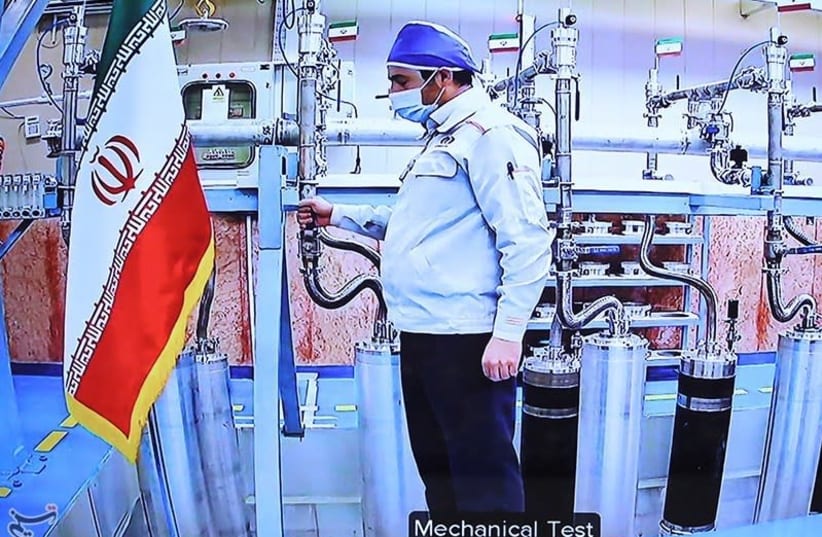Fereydoon Abbasi-Davani, also a candidate in Iran's upcoming presidential elections, added that Israel conducted the recent attack on Natanz based on experience gathered over at least 15 years.
"This is not the first time that destruction has taken place in Natanz, and in terms of major sabotage, we think this is the fifth time that a severe attack has been carried out on Natanz's facilities in the last 15 years," Davani told Fars. "Of course, we have neutralized them to some extent, but we have also been damaged."
While saying that Iran's defense systems are "doing their job," Davani stressed that the systems do not yet have the experience to deal with "enemy capabilities."
The former atomic chief stressed that Iran needed to work on deterrence in order to prevent further damage. "If the enemy will take into account that if he hits us, he will receive a harder blow, then the situation will change. The best defense is offensive."
The explosive used in the most recent attack on Natanz was "the size of a lentil," according to Davani, who stressed that security protocols must be made stricter at nuclear sites and centrifuge production facilities.
"The enemy uses almost all of its thinking on the planet to strike at the holy order of the Islamic Republic, but we have limitations and do not even use all of our internal thinking because the arrests and protections involve more of our own people," Davani told Fars, adding that Iran "cannot completely block the enemy."
The Iranian official stressed that while centrifuges are protected from missiles by being placed 40 to 50 meters underground, they're not sufficiently protected from cyberattacks and the possibility of explosives being smuggled into the facilities.
Davani decried that he is not allowed to "enter the Atomic Energy Organization, while spies easily enter," and that he has not been asked to help. "They did not even want to use the advice of someone like me because there are many sympathizers in the country."
Explosives were used to completely destroy the internal power system at Iran's Natanz uranium enrichment facility in an alleged Israel operation in April.
Davani said shortly after the attack that thousands of centrifuges had been destroyed. The Iranian official stressed that such an operation takes years, saying “the design of the enemy was very beautiful.”
The former AEO head, who now serves on the Iranian Parliament’s energy commission, survived an assassination attempt in 2010 in which bombs were attached to the side of his car by men on motorcycles. Another nuclear scientist, Majid Shahriari, was killed in a similar attack the same day. Davani reportedly worked closely with Mohsen Fakhrizadeh, Iran’s top nuclear scientist, who was killed in an assassination blamed on Israel last year.
Iran's state television identified Reza Karimi as the man it said was behind the attack on Natanz.
Last year, an explosion and fire at the facility reportedly had a significant negative impact on Iran's nuclear program.
